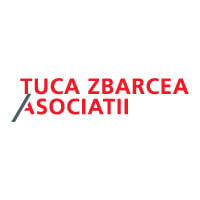

Head of legal | FintechOS



Razvan Neacsu
Head of legal | FintechOS
How do you approach managing legal aspects during periods of instability or crises, and how does your legal strategy align with the broader business strategy to ensure the organisation’s resilience?
During periods of turmoil, our approach centers on prioritisation and focus. It becomes crucial to align closely with the executive team on the core pillars of the business strategy and determine how the legal department will support and sustain those pillars to ensure successful execution. Efficient communication within the legal team also becomes vital. The success of key projects relies on consistent and reliable collaboration. This also means keeping in lockstep with teams across the organisation.
One of our main aims for the legal department is placing the team in the optimal position to maximise the impact of its efforts. We strive for proactive measures over reactive responses. This contributes to the organisation’s resilience, enabling us to navigate challenges while positioning the business for long-term success.
What emerging technologies do you see as having the most significant impact on the legal profession in the near future, and how do you stay updated on these developments?
Artificial intelligence applications present considerable potential for disruption within the legal sector. Specifically, specialised large language model agents are poised to quickly become invaluable tools for legal professionals, particularly given the explosion of data volumes we engage with daily. Leveraging this technology will be crucial in enhancing the capacity of legal teams.
It also appears that AI has the potential to significantly transform the training of new lawyers, prompting us to rethink how we design and support the development of the next generation of legal professionals. This involves not only ensuring they effectively gain the necessary competencies but also equipping them with the skills to navigate and adapt in an increasingly complex environment.
As a legal professional in the technology sector, staying informed about new technologies is a fundamental responsibility. I believe it’s essential for legal counsels in tech to have a strong understanding of key technological developments in order to provide sound advice in a rapidly evolving landscape.
In your opinion, what are the main trends that are salient in your country currently (these can be legal, political, economy or business-based)?
Considering the prevailing economic climate, the possibility of increased taxation has emerged as a significant potential concern in some of the key jurisdictions where we operate. This prospect is likely to prompt businesses to reassess their cost structures, compelling legal departments to seek an optimised service design – whether by enhancing efficiency and streamlining flows, or by realigning with business needs and redefining the scope of services. This underscores the necessity for legal departments to embrace emerging technologies that can enhance the effort of teams and help deliver greater value through their services.
Head of legal | FintechOS